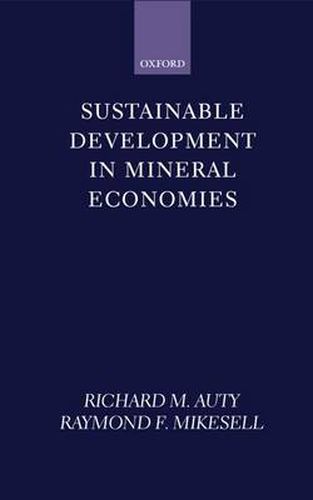Readings Newsletter
Become a Readings Member to make your shopping experience even easier.
Sign in or sign up for free!
You’re not far away from qualifying for FREE standard shipping within Australia
You’ve qualified for FREE standard shipping within Australia
The cart is loading…






The mineral economies comprise approximately one-fifth of developing countries. They face special problems in achieving sustainable development, and have as a group been less successful than resource-deficient neighbours. This book examines the apparent paradox, detailing the current problems facing the mineral economies and the future policies necessary to overcome these problems. \n\n Nine countries are studied: Botswana, Chile, Colombia, Indonesia, Jamaica, Namibia, Papua New Guinea, Peru, and Trinidad and Tobago. The authors argue that the key factor is not the sustainability of the mineral production that initially generates growth, but the maintenance of the economic and social conditions for sustaining that growth. They draw upon recent progress in environmental and natural resource accounting to show how this can be achieved, and also assess the socio-political factors that often constrain sustainable development.
$9.00 standard shipping within Australia
FREE standard shipping within Australia for orders over $100.00
Express & International shipping calculated at checkout
The mineral economies comprise approximately one-fifth of developing countries. They face special problems in achieving sustainable development, and have as a group been less successful than resource-deficient neighbours. This book examines the apparent paradox, detailing the current problems facing the mineral economies and the future policies necessary to overcome these problems. \n\n Nine countries are studied: Botswana, Chile, Colombia, Indonesia, Jamaica, Namibia, Papua New Guinea, Peru, and Trinidad and Tobago. The authors argue that the key factor is not the sustainability of the mineral production that initially generates growth, but the maintenance of the economic and social conditions for sustaining that growth. They draw upon recent progress in environmental and natural resource accounting to show how this can be achieved, and also assess the socio-political factors that often constrain sustainable development.